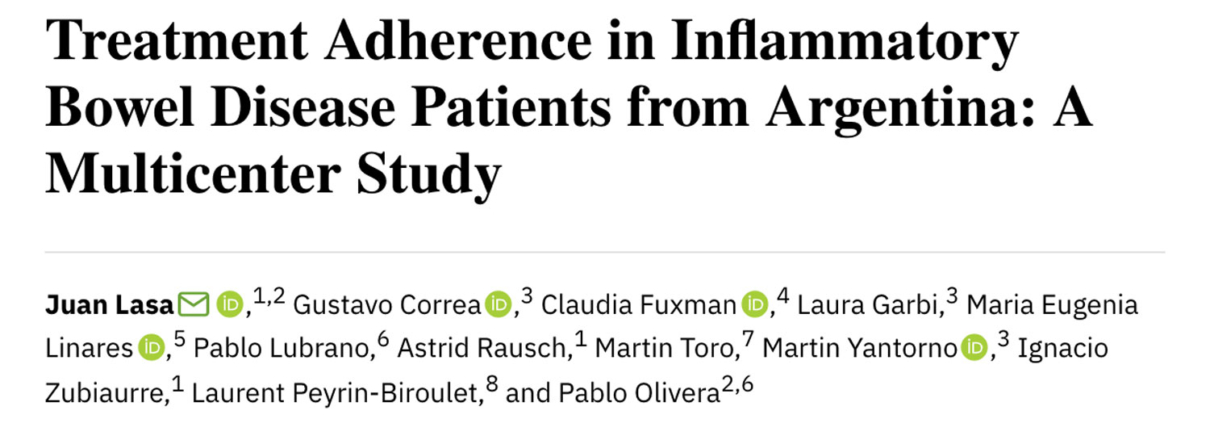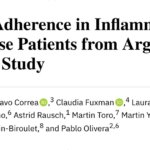Treatment Adherence in Inflammatory Bowel Disease Patients From Argentina: A Multicenter Study
1Gastroenterology Department, Hospital Britanico de Buenos Aires, Buenos Aires, Argentina.
2Gastroenterology Section, Department of Internal Medicine, Centro de Educación Médica e Investigaciones Clínicas (CEMIC), Buenos Aires, Argentina.
3Gastroenterology Department, Hospital Interzonal General de Agudos «General José de San Martín», La Plata, Argentina.
4Gastroenterology Department, Hospital Universitario Fundacion Favaloro, Buenos Aires, Argentina.
5Gastroenterology Department, Hospital de Clínicas «José de San Martín», Buenos Aires, Argentina.
6Gastroenterology Department, Sanatorio Mater Dei, Buenos Aires, Argentina.
7Gastroenterology Department, Hospital Universitario, Universidad Nacional de Cuyo, Mendoza, Argentina.
8INSERM U954 and Department of Hepatogastroenterology, Nancy University Hospital, Université de Lorraine, Vandoeuvre-lès-Nancy, France.
Methods: A multicenter cross-sectional study involving seven referral centers from three cities of Argentina was undertaken. Patients with a diagnosis of ulcerative colitis (UC), Crohn’s disease (CD), or indeterminate colitis (IBDU/IC) were invited to answer an anonymous survey, which included a 5-point Likert scale to evaluate adherence to therapies. Independent variables associated with inadequate adherence were evaluated.
Results: Overall, 447 UC/IBDU and 135 CD patients were enrolled. Median age was 37 years (range 21-72); 39.8% were male; median time from diagnosis was 6 years (0.5-35). 91.4% were under treatment with at least one oral medication; 50.3% of patients reported inadequate adherence to oral medications. Patients with UC/IBDU had a lower risk of inadequate adherence when compared to patients with CD (OR 0.57 (0.37-0.87)). 21.8% reported inadequate adherence to biologics; subcutaneous administration was significantly associated with inadequate adherence to biologics (OR 4.8 (1.57-14.66)).
Conclusion: Inadequate treatment adherence is common among patients with IBD, and potentially modifiable factors were identified.
Copyright © 2020 Juan Lasa et al.



